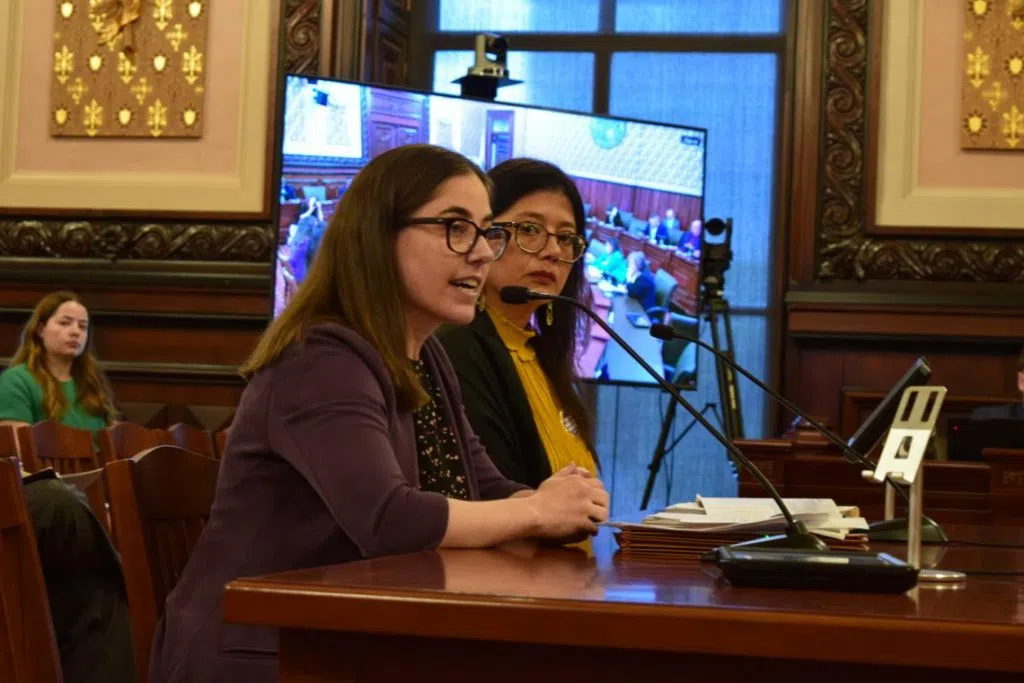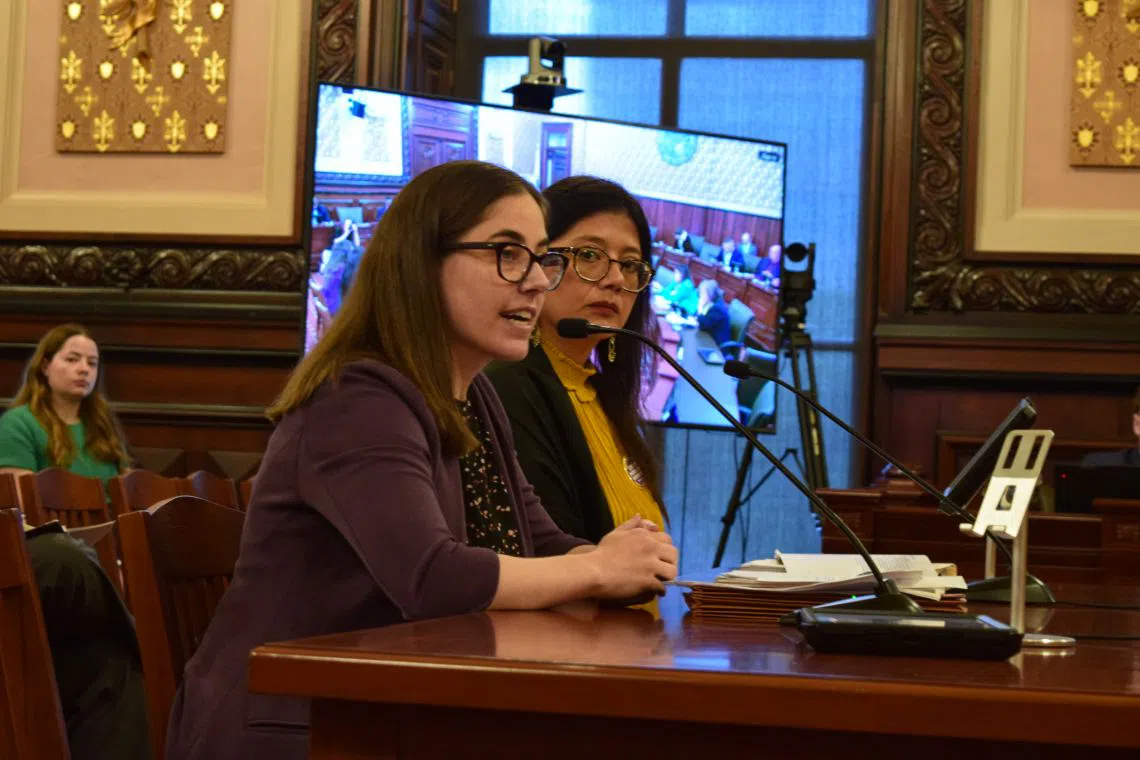
By JADE AUBREY
Capitol News Illinois
jaubrey@capitolnewsillinois.com
SPRINGFIELD — A Senate committee on Wednesday advanced a measure aiming to limit the circumstances under which tenants can be evicted due to local “crime-free housing” ordinances.
The measure was backed by housing advocates who argued the crime-free ordinances have been used to evict people in instances where the actual residents of the homes in question committed petty offenses or no crimes at all. But law enforcement and municipal groups countered that limiting local authority to enforce crime-free or nuisance ordinances would take away policies that can be used to revitalize neighborhoods.
The Senate Executive Committee approved Senate Bill 2264 on Wednesday, which cracks down on crime-free housing policies after a recent investigation by the Illinois Answers Project and The New York Times. It found that there were more than 2,000 cases in 25 Illinois cities where crime-free housing ordinances were enforced from 2019 to 2024, with about 500 of those cases involving evictions.
The investigation found that only a third of those 2,000 violations were for serious crimes like drug charges or felony convictions. The other approximately 1,300 violations were due to misdemeanors or noncriminal offenses, “many of which were never pursued by prosecutors,” according to the reporting.
Crime-free housing ordinances in Illinois municipalities began cropping up in the early 1990s in attempts to remove violent criminals, drug dealers and nuisance tenants who frequently disturb their neighbors at rental properties. While the local ordinances have been used to achieve those goals, advocates say they are sometimes abused to apply to people who aren’t even accused of crimes, much less convicted of them.
In recent years, many cities have enforced the laws so aggressively that virtually any contact tenants have with law enforcement has been used as a reason to bring violations against tenants, according to the news reporting. That includes evictions of tenants who called the police to request assistance, which led housing advocates to push for the new bill.
In 2015, Illinois lawmakers passed a law prohibiting the ordinances from being used to evict victims of domestic violence. At the time, some cities were counting calls to police made by victims of domestic violence as nuisance calls, resulting in the eviction of the victims, the Chicago Tribune reported.
If enacted, SB 2264 would bar municipalities from penalizing tenants for calling the police to request assistance from law enforcement officers. It would also prohibit nuisance and crime-free ordinances from being applied to tenants who are not themselves accused of crimes and would block ordinances from being applied to tenants based on who they associate with, unless the association itself is a crime.
Any municipality enforcing crime-free housing policies would have to hire a crime-free housing coordinator, who would handle cases where law enforcement informs a landlord that a tenant should be evicted. The coordinator would review cases and decide whether the tenant’s action warrants eviction.
Tenants would be given the right to challenge enforcement action in circuit court, and municipalities would be required to create a hearing process for those facing enforcement actions.
Illinois Association of Chiefs of Police Executive Director Kenny Winslow, who previously served as Springfield police chief, called the city’s crime-free housing laws a “usual crime prevention crime reduction tool.” His organization opposed the measure, which passed with only Democratic support.
“When utilized right, it can be a revitalization tool for a neighborhood,” he said.
Michael Banske, director of the Illinois Crime Free Association, disputed claims that the ordinances are overused.
“We do not displace families for domestic violence situations, for excessive calls for the police to come there,” he said in committee. “Nuisance abatement is completely separate. Oftentimes in a municipality, both of those are handled by the same officer or the same division, but they are, in fact, separate.”
The measure still needs approval from the full House and Senate before it would head to the governor for consideration.
Capitol News Illinois is a nonprofit, nonpartisan news service that distributes state government coverage to hundreds of news outlets statewide. It is funded primarily by the Illinois Press Foundation and the Robert R. McCormick Foundation.





